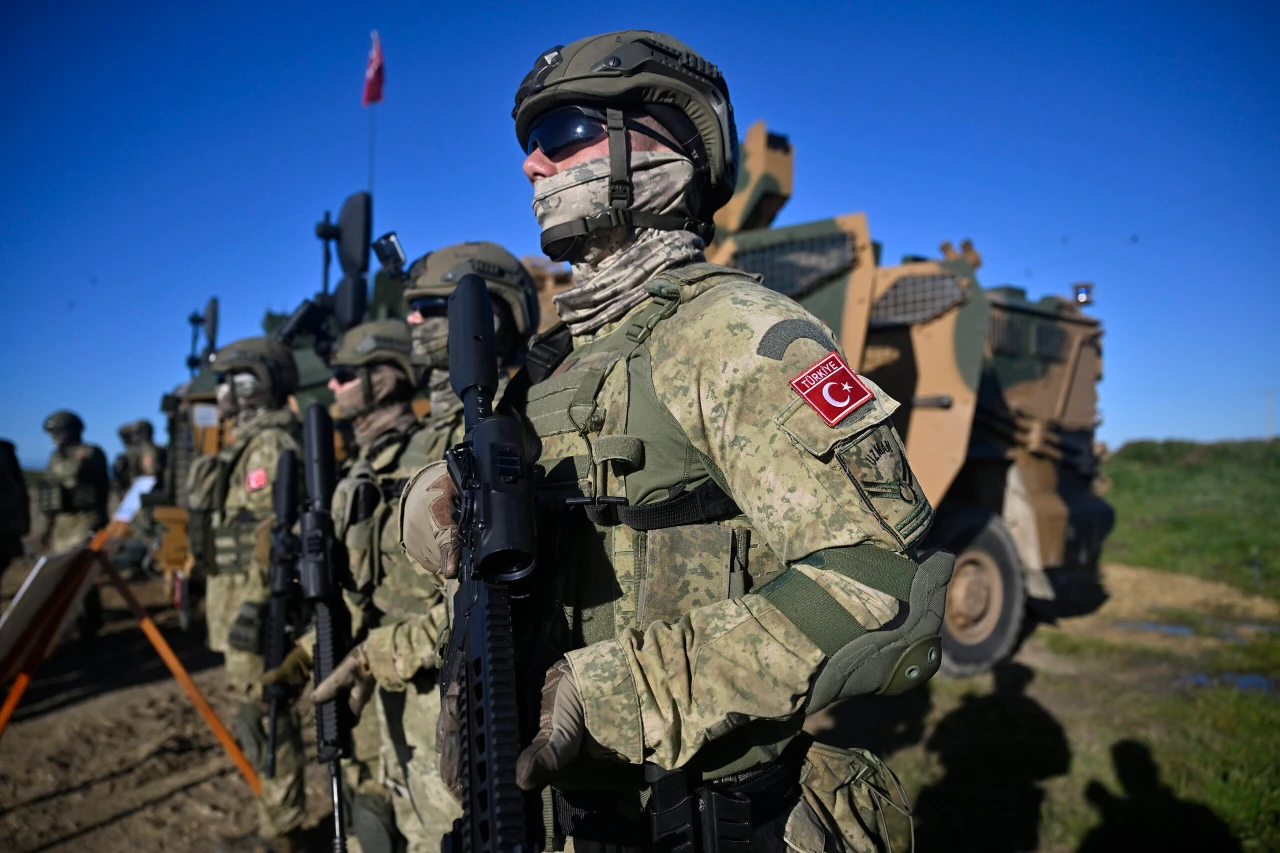Borrell slams Russia’s nuclear policy shift as war in Ukraine hits 1,000 days
 High Representative of the EU for Foreign Affairs and Security Policy Josep Borrell hold a news conference on 'EU 2024 Enlargement Package', in Brussels, Belgium, October 30, 2024. (AA Photo)
High Representative of the EU for Foreign Affairs and Security Policy Josep Borrell hold a news conference on 'EU 2024 Enlargement Package', in Brussels, Belgium, October 30, 2024. (AA Photo)
The European Union’s foreign policy chief, Josep Borrell, issued a strong condemnation of Russia’s decision to update its nuclear doctrine, criticizing the reduced threshold for deploying nuclear weapons in conflict.
“To talk about nuclear deterrence… is something that we strongly reject. We condemn any reference to the use of nuclear arms,” Borrell stated Tuesday after a meeting of EU defense ministers.
The timing of the announcement, coinciding with the 1,000th day of the war in Ukraine, was labeled as deliberate by Borrell. He underscored the gravity of the ongoing conflict, calling it “the biggest threat to European security and stability since the end of the Second World War.”
Borrell, whose tenure as EU foreign policy chief is nearing its conclusion, emphasized the critical role of unity and support for Ukraine. “The fate of Ukrainians will determine the fate of the European Union,” he said, warning of escalating external support for Moscow.
“Russia is getting support from China, North Korea, Iran and others. This is an escalation in deep contrast without any intention to seek peace,” he said. According to Borrell, this backing has enabled Russia to sustain its war efforts, prolonging the conflict.
The Kremlin’s updated nuclear doctrine, approved Tuesday by Russian President Vladimir Putin, follows changes announced in September. The revisions now include the potential use of nuclear weapons in response to a conventional missile attack supported by a nuclear-armed state.
Borrell called Russia’s approach to nuclear policy reckless. “Any call for nuclear warfare is an irresponsibility. It is not the first time that Putin has played the nuclear game ball,” he said, referencing previous tactics such as weaponizing food and energy crises.
The doctrine’s update comes weeks after U.S. President Joe Biden authorized Ukraine to use long-range American missiles for strikes within Russian territory, further heightening tensions.
Borrell reiterated the EU’s rejection of nuclear escalation, highlighting its incompatibility with the bloc’s pursuit of peace. “To talk about nuclear deterrence is something that we strongly reject,” he said.
The EU continues to advocate for a unified response to the war in Ukraine, warning of the broader implications for European stability.



